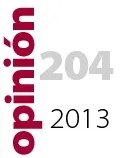The time-factor in Syria

Eduard Soler i Lecha
Research Coordinator, CIDOB.
25 Septiembre 2013 / Opinión CIDOB, n.º 204 / E-ISSN 2014-0843
After more than two years of conflict in Syria, Bashar al-Assad is gaining time while taking advantage of his adversaries’ weaknesses. Having accepted the Russian proposal that was subsequently brokered between Russia and the United States and called for the disposal of Syria’s chemical arsenal under United Nations’ supervision, he has managed to evade the threat of international intervention. Moreover, he has become an indispensable actor in the safe dismantling of that arsenal. This development is of major consequence, given that both the United States and Israel have expressed their fears of chemical weapons falling into the hands of groups such as Al-Nusra Front (which is affiliated to the Al-Qaeda brand) or Hezbollah, the loyal ally of al-Assad in Lebanon, despite the fact that these groups most likely do not possess the technical and logistical means to use these weapons on their own.
The Russian-American proposal states that by the summer of 2014, the chemical arsenal should have been destroyed. Within this framework of negotiation, Bashar Al-Assad has set out to reaffirm his position as the major player in the Syrian conflict. In an interview with FOX news, he asked for a billion dollars of financial assistance and a year’s time for successful disarmament of Syria’s chemical weapons. By stating his own terms, Bashar has demonstrated the considerable leverage he has now gained with Obama and his allies. He has also bought himself time, which he will very likely use to improve the regime’s strategy of turning the Syrian conflict into one of sectarian strife, where the regime and himself emerge as the only guarantors of minorities.
It is worth recalling that in March 2011, when the protests started, the opposition came up with the three no’s policy: no violence, no sectarianism and no international intervention. However, after months of pacific resistance, an armed resistance materialized around the Syrian Free Army. It also opened a window of opportunity for jihadist groups to involve themselves in the conflict, the most well known being the Al-Nusra Front. This group has not only gained control of parts of the territory, but has also managed to change the narrative of the conflict, a far cry from the discourse of the revolutionaries and the democratic ideals of the first protests.
From a military perspective, the Jihadist groups pose a threat to the regime; their asymmetric urban warfare is difficult to combat, resulting in destruction and loss of innocent lives. Yet, its strengthening at the expense of more moderate groups in the opposition has served to advance the regime’s position. Bashar has gained ammunition to feed into the politics of fear. This is especially true in the case of the Alawi and Christian minorities, who fear for their survival if the radical groups emerge as military and political victors in a post-Assad regime. Even a significant part of the Kurdish community, which has traditionally been marginalised by a regime that calls itself Arab nationalist, today thinks that they have more to win reaching an agreement with the regime and gaining some autonomy like their Iraqis neighbours, rather than joining forces with the Jihadists.
The strengthening of the Jihadists is also conditioning the position of the international community in the conflict. There are some sectors that, without having any sympathy towards Al-Assad, still consider him lesser of the two evils. At the same time, there are those who being against the intervention, be it for principles or for interests, exaggerate the role of the Jihadists in Syria to justify their inaction. All this has a paralyzing effect that gives time and cover to the regime to continue its bloody repression, and with it, radicalizing the other side allowing the regime to sell itself as the only bulwark against the chaos provoked by the terrorists.
The Syrian conflict has become a war for survival, not only in political terms but in physical terms. Given this existential threat, yielding to the adversary is not an option for either side. Moreover, both sides have enough support from their regional and international allies to keep the conflict alive in the coming months and even years. Meanwhile, the enormous humanitarian catastrophe is increasing and foreign powers, serving their own interests, are unable to mitigate the ensuing violence. With 100,000 deaths, two million refugees and countless internally displaced, the human cost of the conflict is increasing exponentially as time goes by. Under these circumstances we keep drawing scenarios, some bad, others worse; and asking what or who could stop this spiral of destruction.
If Bashar Al-Assad’s bet of becoming an indispensable actor for the great powers continues to pay off, the war of attrition will go on and both parts will continue radicalizing their positions. However, we should not discard that a tactical mistake made by the regime (like attacking a neighbouring country or not complying with disarmament) could activate again the intervention plans that, under these new circumstances, could have more backing from the international community. Finally, the political solution is what everybody hopes for but almost nobody expects. Diplomatic avenues for conflict resolution, such as a peace conference (Geneva II) will hardly succeed unless there is not a change of strategy from those who back Al-Assad (Iran and Russia). It also requires a more united opposition ready to accept that parts of the current regime will continue to play a role in the political landscape of Syria.
Although everything is at stake and not everything is in Al-Assad hands, it is getting clear that both the regime and the more radical sectors of the opposition are comfortable enough in the first scenario. A permanent conflict of a sectarian nature is for the jihadists a way to access power and for Al-Assad, still the easiest way to keep it.